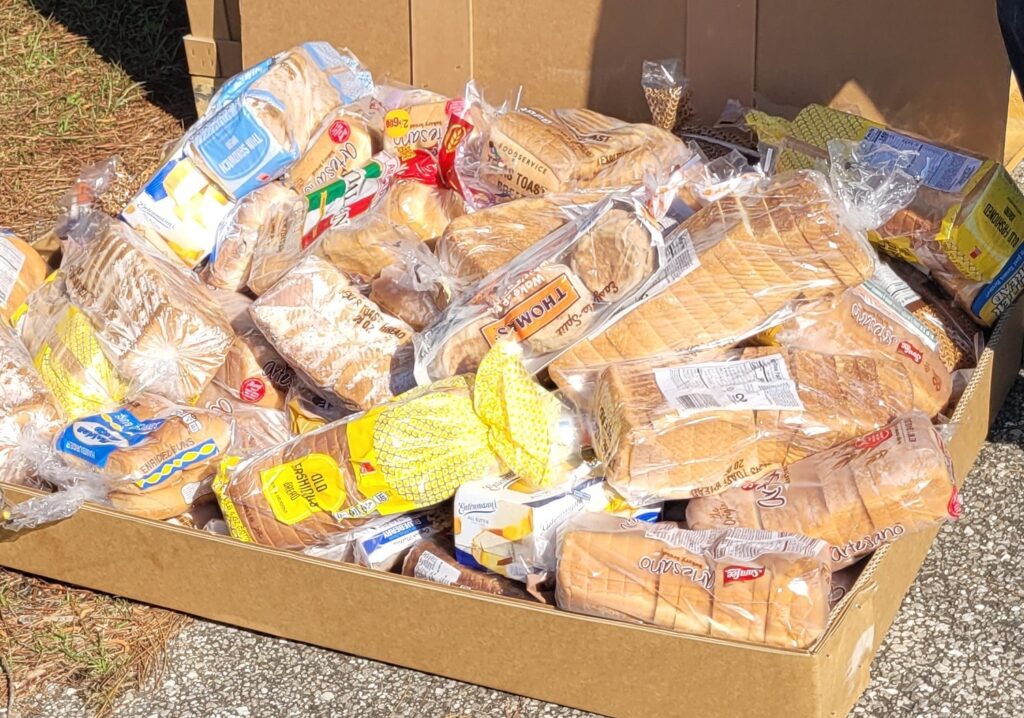
Advocates call for restoration of food program for schoolchildren

Photo by St. Clair Murraine

By St. Clair Murraine
Outlook Staff Writer
When Congress recently decided to pass the 1.5 trillion omnibus spending bill with the omission of waivers that allowed schools to prepare and distribute food to students, a loud thud was heard around the country.
That included Tallahassee and the rest of Florida. It sent community organizations and child hunger advocates scrambling to find an answer. No Kid Hungry Florida is leading the way with a fundraising drive to head off the worst that’s expected to come when children are out of school.
The waiver program will officially end on June 30, around the time that schoolchildren will be at home for the summer. While the Agriculture Department has funding to continue the program, it can’t do so without authorization from Congress.
Representative Al Lawson, whose district includes Tallahassee, said he will encourage his colleagues to back reviving the program.
“The ability to provide studentsåwith meals to learn and grow is always a top priority, especially during summer months when access to food may not be readily available,” Lawson said. “I am working with congressional leadership to pass legislation that would extend the funding waivers for school meal programs for an additional year. No child in my district or across the country should have to experience hunger.”
Along with the fundraising, No Kid Hungry Florida, affiliate of a national organization, is also participating in a campaign to get Congress to come up with some sort of alternative.
“No Kid Hungry’s request is that they find a fix and really make this right,” said Sky Beard, Director of No Kid Hungry Florida. “Go back, make this right and find a way to fix this problem.
“Really, that onus falls on Congress to determine the best path to fix this particular issue. It is urgent with summer right around the corner. We are very concerned that without swift action many children in our state will not have the ability to access the food that they need and deserve.”
At the outset of the pandemic, Congress authorized the Agriculture Department to grant waivers to cover the cost of food by reimbursing the cost of school meals. The funds covered the cost of food that were either delivered or picked up from the schools.
The loss of funds come at a time when Feed America reported that 27 percent of children under 18 live in homes that are limited or uncertain about the availability of safe and nutritious food. Additionally, 1 in 5 children live in homes that are food insecure.
In Leon County, 20 percent of children usually don’t know if they will have a meal, Beard said. Areas like Madison and Jackson counties have as many as 32 percent of kids living in homes that are food insecure, she said.
Most students who rely on the food program attend Title 1 schools that provide resources to assist their economic situation. Talethia Edwards, president of the Bond Neighborhood Association, has seen how three elementary schools in her area (Pineview, Nims and Bond) benefit from the food program.
Second Harvest and Farm Share could be alternatives for local children, she said, but in the meantime the federal program should continue.
“Those things are still available in our community,” she said, referring to Second Harvest and Farm Share. “They aren’t going away.”
However, she joined the call for the government to continue the food program.
“I understand what they are talking about with funding,” Edwards said, “but the government should consider, while we are still in COVID, while we are still wearing masks, while we are still pushing vaccines and all of those things that are necessary, food to feed our most vulnerable children in school should also be necessary.”
Beard echoed Edwards’ comments.
“Now is definitely not the time to pull those waivers from underneath them,” she said, “because their circumstances or the pandemic are not over.”







